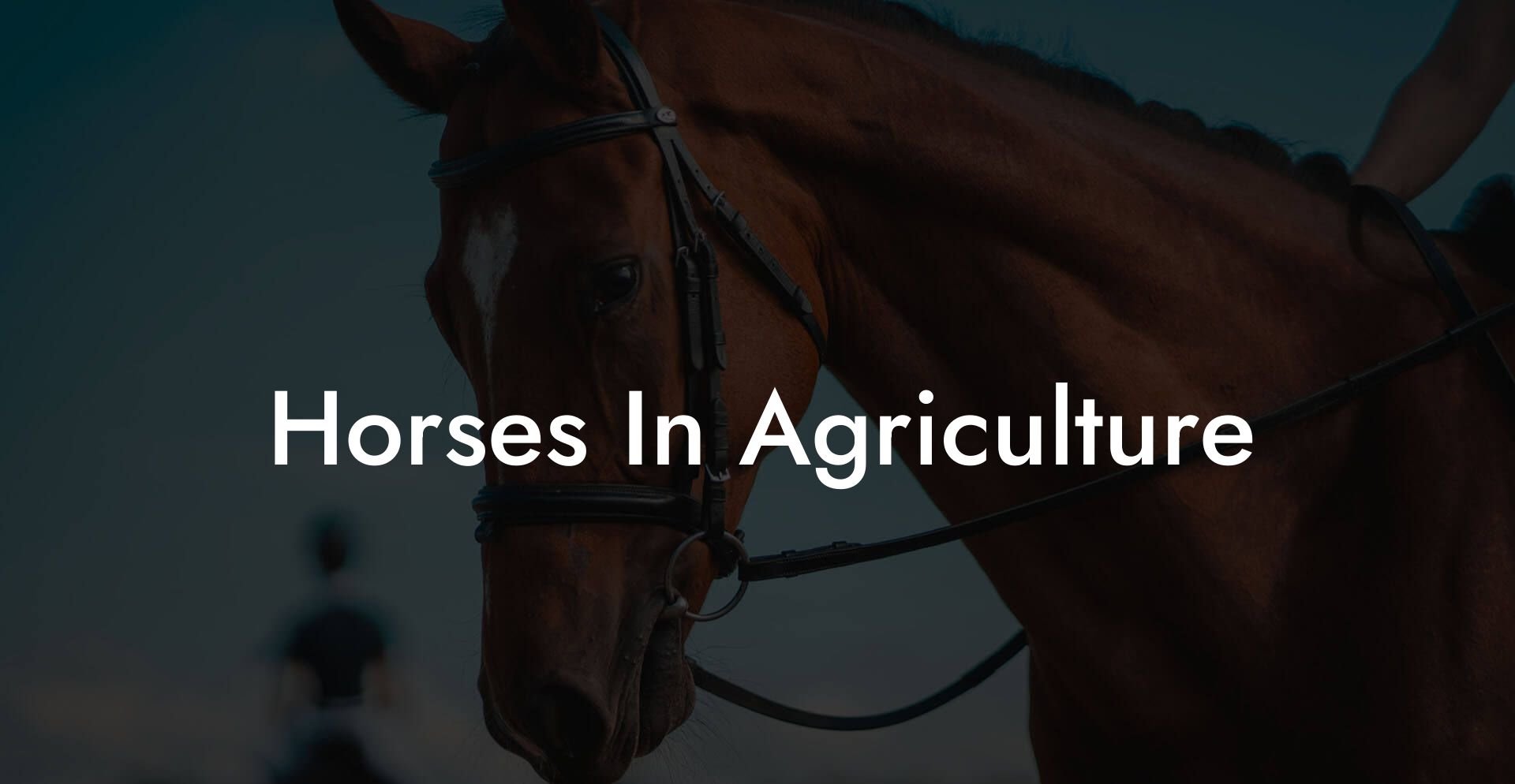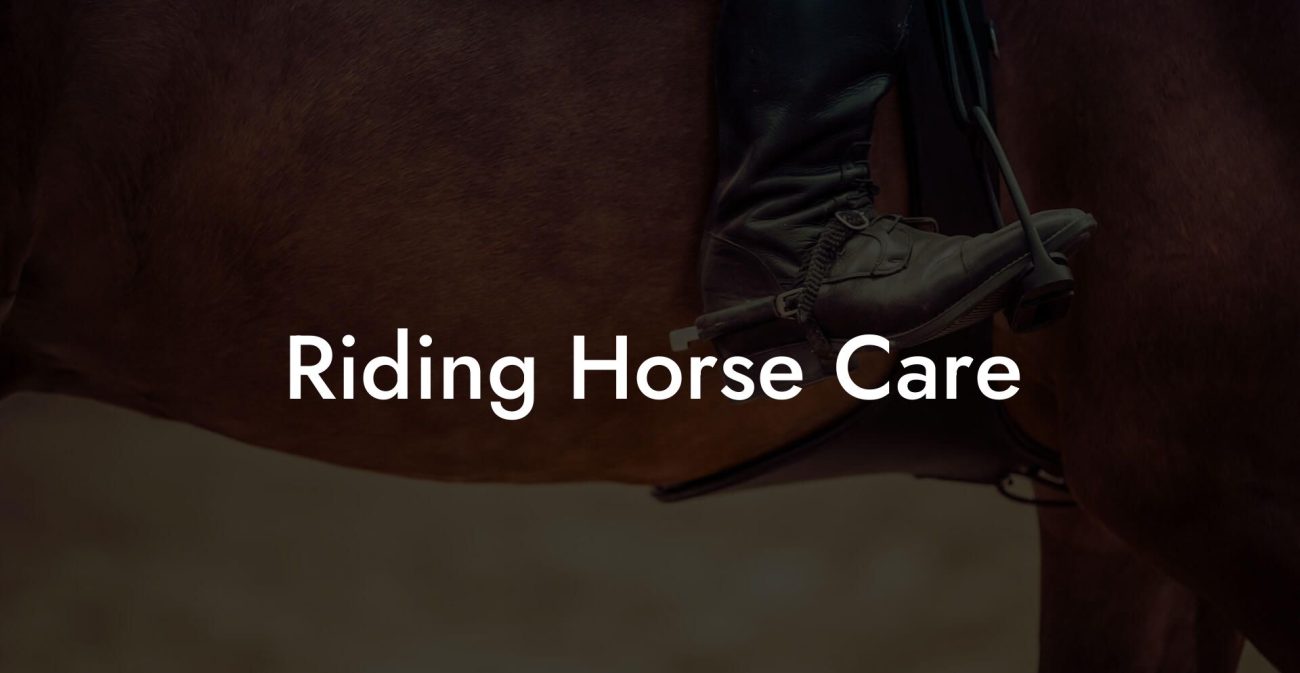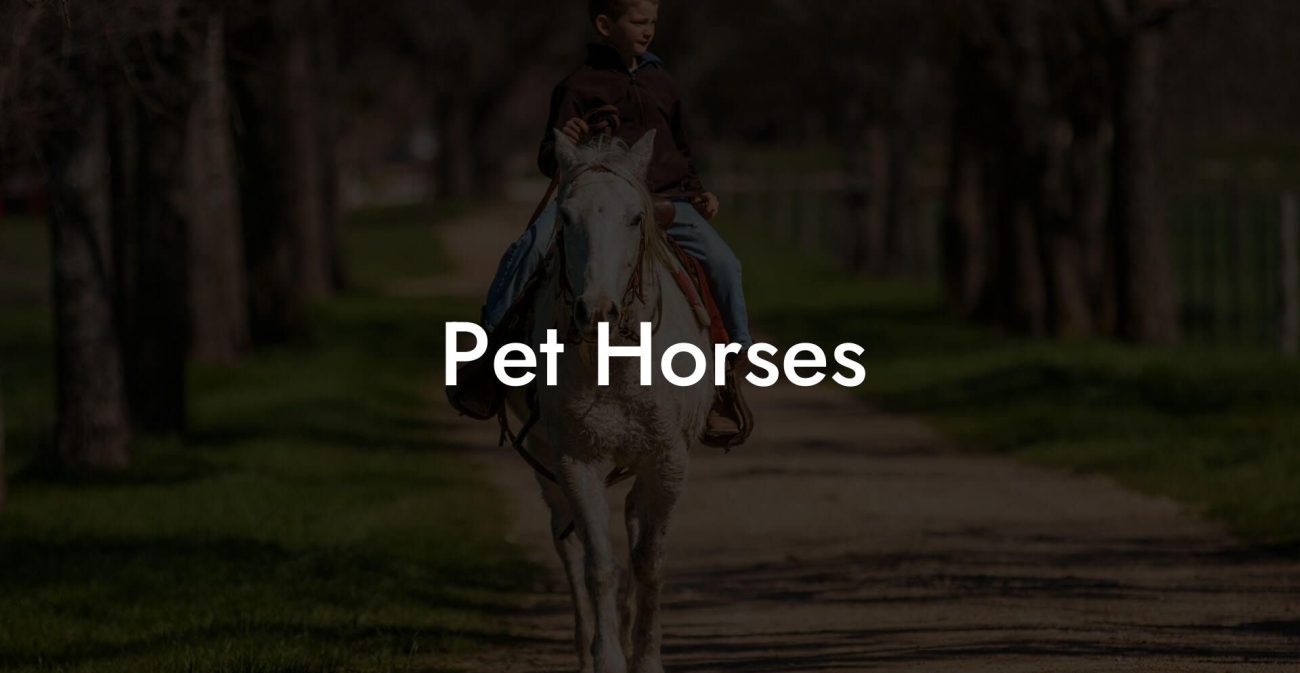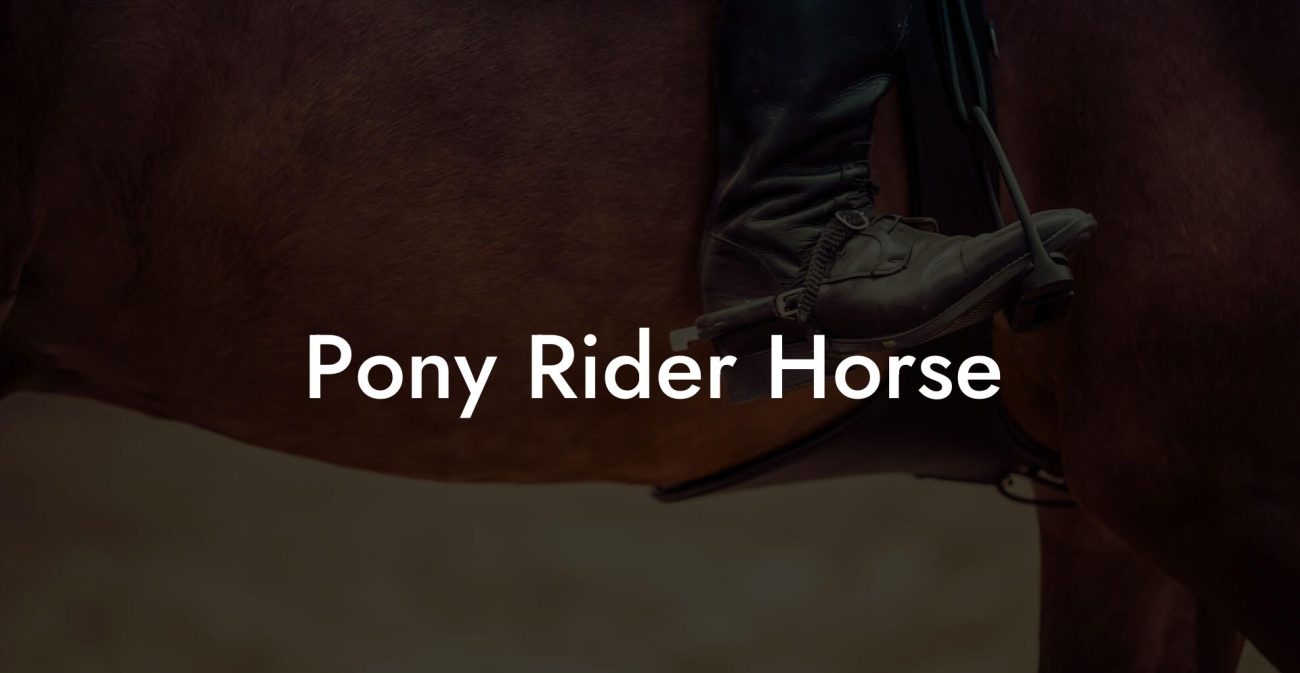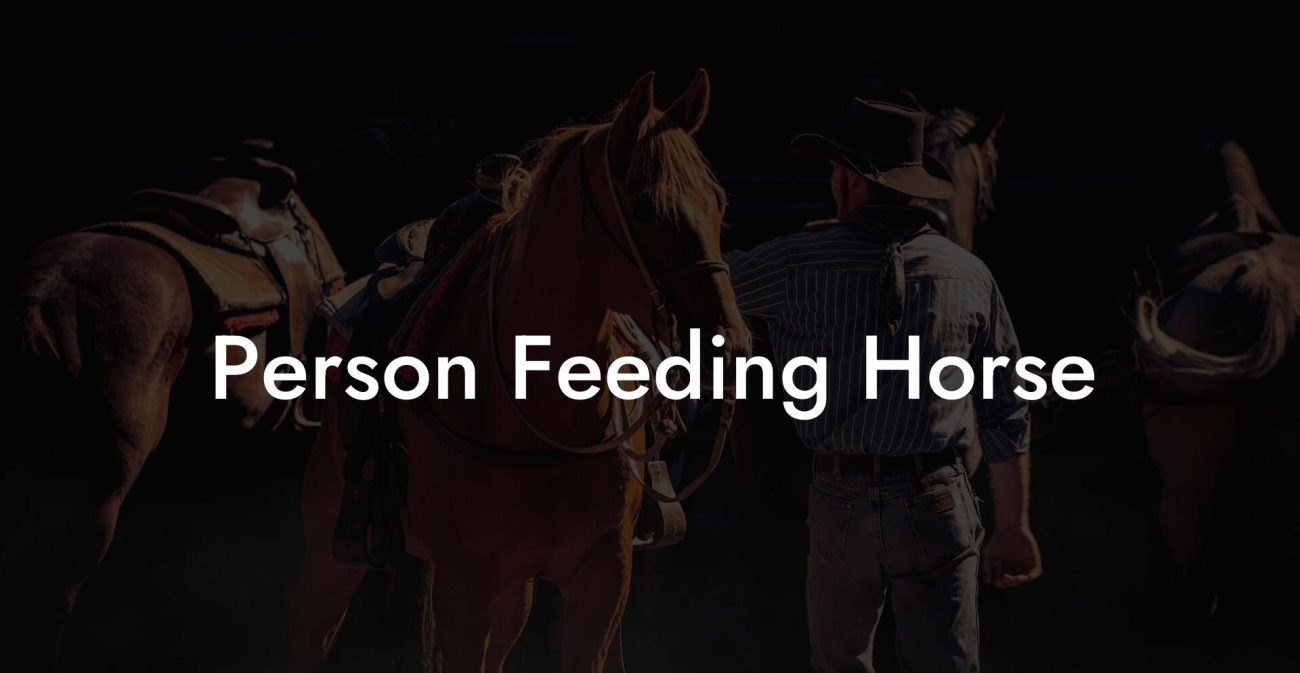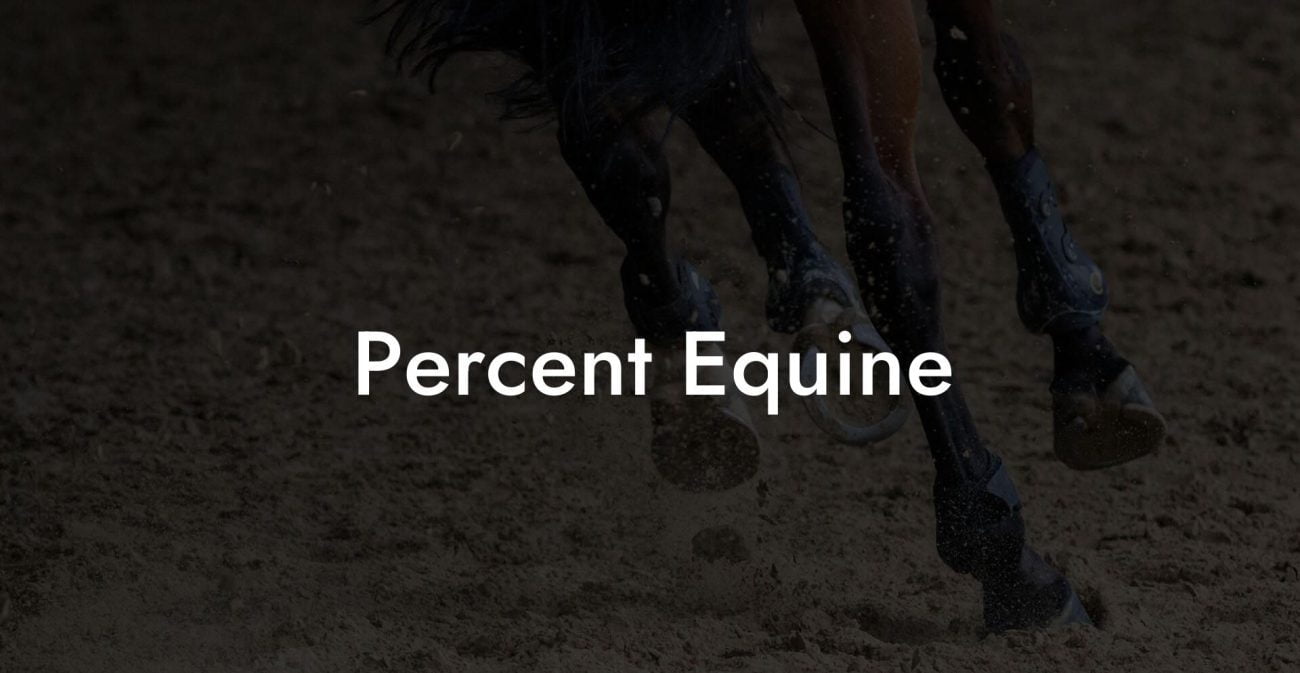Picture this: a sunlit farm where vintage meets modern, where high-tech meets hay, and where majestic horses aren’t just pulling plows, they’re pulling at your heartstrings. In this wild blend of sustainable farming and cutting‐edge equine care, these four-legged partners aren’t relics of the past; they’re the original eco-warriors redefining rural life. Whether you’re a budding urban farmer or a millennial equestrian enthusiast, get ready to dive deep into a world where horses in agriculture mean heritage, innovation, and a whole lot of cool.
Quick Links to Useful Sections
- Horses in Agriculture: A Legacy of Power and Grace
- Modern Equine Farming: Bridging Tradition and Innovation
- Essential horse care in Agricultural Settings
- The Basics: Feeding and Nutrition
- Grooming and Health Maintenance
- stable Maintenance and Living Environment
- Exercise and Work Balance
- Preventative Care: Proactive Measures for Longevity
- Understanding Equine Behavior: Building a Genuine Bond
- Communication on the Farm
- training and Positive Reinforcement
- Social Dynamics and Herd Behavior
- Technological Advances in Equine Care and Farm Management
- Digital Health Monitoring
- Farm Management Software
- Online Communities and Virtual Support
- Sustainable Farming and the Environmental Impact of Horses
- Reducing Carbon Footprints
- Nutrient Cycling and Organic Farming
- Integrating Renewable Practices
- Resources and Community Support: Your Next Steps
- Continuing the Journey: Long-Term Equine Wellness and Farm Success
- Your Journey to Mastering Horse Care in Agriculture
- The Interwoven Legacy of Horses: From Tradition to Today’s Commerce
- Innovations in Equine Reproductive Health and Genetic Advancement
- Equine Compatibility: Integrating Horses with Other Farm Animals
- Advanced Training Techniques: Combining Digital Tools and Traditional Horsemanship
- Economic Sustainability: The Financial Benefits of Equine Agriculture
- Stepping Up Your Game: Tips and Tricks from Seasoned Farmers
- Embracing the Future: Your Role in the Next Generation of Equine Agriculture
- Frequently Asked Questions About Horses in Agriculture
Horses in Agriculture: A Legacy of Power and Grace
For centuries, horses have been the backbone of agricultural progress. They plowed fields, hauled crops, and stood by as steadfast companions on farms large and small. Their contributions have carved out a legacy that goes far beyond simple labor, they embody a connection to the land and a respect for nature’s pace. Today, as sustainable practices and organic farming gain traction, many Gen-Z and millennial farmers are looking back to these time-honored traditions, reintegrating horses into agricultural life as eco-friendly, soulful partners.
The magic of horses in agriculture lies in their dual roles as both workmates and symbols of a simpler, more connected existence. They remind us that farming doesn’t have to be all about noisy machines and concrete jungles, it can be a harmonious blend of nature, nurture, and technology. By embracing the strengths of these magnificent creatures, modern agriculturalists are crafting a future that’s as sustainable as it is heartwarming.
Modern Equine Farming: Bridging Tradition and Innovation
In an era where tractors, drones, and data analytics rule the day, you might ask: why would anyone choose horses? The answer is as refreshing as a cool breeze in a hot barn, horses bring an authenticity and environmental grace that no machine can match. Modern equine farming isn’t about living in the past; it’s about marrying tradition with technological innovation to create a practice that’s good for the planet and for your soul.
Consider the benefits:
- Eco-Friendliness: Unlike diesel-guzzling machinery, horses run on natural fuel (think high-quality hay and pasture), drastically reducing emissions and noise pollution.
- Enhanced Soil health: Their manure is a powerhouse fertilizer, naturally enriching the soil without the harsh chemicals.
- Cost-Effective Operations: Particularly for smaller farms, using equine power slashes fuel costs and maintenance expenses.
- Community Engagement: Horses garner admiration and foster community spirit through local equestrian events, CSA programs, and farm-to-table experiences.
- Therapeutic Benefits: Working with horses can alleviate stress and uplift mental well-being, a true win-win for farmer and furry friend alike.
This renaissance of equine farming blends age-old traditions with modern sustainability practices. It’s a celebration of heritage and a bold step into the future of eco-friendly agriculture.
Essential horse care in Agricultural Settings
Taking care of horses on the farm is both an art and a science: it involves nutrition, grooming, shelter, exercise, and emotional well-being. Whether you’re a veteran horse whisperer or new to the saddle, understanding the multifaceted needs of your equine partner is crucial for long-term health and productivity.
The Basics: Feeding and Nutrition
A well-fed horse is a happy, high-performing partner. The foundation of excellent equine care starts with nutrition:
- Forage First: High-quality hay and lush pasture are essentials. They provide the bulk of a horse’s dietary needs and ensure robust digestive health.
- Grains and Concentrates: While grains can be a supplementary energy boost, moderation is key to avoid digestive upsets.
- Minerals and Vitamins: Depending on environmental factors and pasture quality, tailored supplements keep hooves healthy and coats shiny.
- Fresh Water: Always ensure an abundance of clean water, hydration is as critical as nutrition.
Observing your horse’s eating habits and adjusting food quality over time will help optimize health and keep them energetic both in the field and during downtime.
Grooming and Health Maintenance
Grooming sessions are more than cleaning rituals, they’re bonding experiences that keep your horse in peak shape. Consider these essential steps:
- Daily Grooming: Regular brushing removes dirt and loose hair, while stimulating blood circulation.
- Hoof Care: Inspecting and cleaning hooves to prevent infections is vital. Scheduling regular farrier visits ensures proper trimming and balance.
- Bathing and Scratching: While not a daily necessity, occasional baths using equine-specific shampoos and providing scratching posts keeps your horse comfortable.
- Veterinary Check-ups: Routine health examinations, vaccinations, and dental checks help catch potential issues before they escalate.
This regular maintenance isn’t just about clean coats, it’s a proactive approach to health that fosters trust and strengthens the human-horse connection.
stable Maintenance and Living Environment
A comfortable and safe stable is the cornerstone of good equine care. Whether housed in a rustic barn or a modern facility, consider these factors:
- Cleanliness: Regular removal of manure and replacement of clean bedding prevent respiratory issues and illness.
- Ventilation: Fresh air and proper airflow lower the risk of respiratory infections and maintain a healthy environment.
- Safety Checks: Routine inspections for hazards like loose boards or toxic plants ensure your horse’s living area remains secure.
A well-maintained stable isn’t merely about aesthetics, it creates a sanctuary that mirrors the horse’s natural habitat, reducing stress and promoting overall well-being.
Exercise and Work Balance
Exercise is crucial for preserving muscle tone and mental sharpness, especially when your horse is juggling farm duties alongside leisure time. While they’re hard workers, horses also need time to stretch, run freely, and just be horses.
Pro Tip: Establish a balanced schedule that alternates strenuous work with periods of light activity and rest. This way, your horse maintains peak physical condition without risking burnout.
Preventative Care: Proactive Measures for Longevity
Preventative measures go a long way in ensuring your horse remains a vibrant and reliable partner. This approach includes:
- Vaccination Schedules: Keeping up-to-date with vaccinations prevents many common illnesses.
- Parasite Control: A strategic deworming plan is essential in warding off parasitic infestations.
- Regular Exercise: Encouraging daily physical activity can help preempt mobility issues and muscle deterioration.
- Dental Care: Routine dental check-ups ensure that feeding remains comfortable and effective for your horse.
Investing in preventative care is an investment in the future. It means fewer emergencies and a longer, healthier life for your equine team.
Understanding Equine Behavior: Building a Genuine Bond
The secret to truly exceptional horse care lies in understanding your horse’s unique behavior. These animals communicate in ways that are subtle yet insightful, offering clues through body language, ear movements, and even the tilt of their head.
Communication on the Farm
Imagine deciphering a secret language, your horse’s body language reveals moods, levels of comfort, and even hints at potential stress. Just like enjoying a perfectly timed meme, catching these subtle cues can lead to a deeper, more rewarding relationship.
training and Positive Reinforcement
Training should be a delightful duet rather than a one-sided lecture. Using positive reinforcement, think treats, sincere praise, and moments of quiet connection, lays a strong foundation of trust. Modern training blends age-old techniques with data-driven insights to cultivate skills and encourage good habits.
Whether you’re just teaching basic commands or refining advanced skills, the key is consistency and compassion. Every successful training session also builds the unspoken bond that will make every day on the farm that much more enjoyable.
Social Dynamics and Herd Behavior
On farms where more than one horse shares the space, understanding herd dynamics becomes vital. Horses naturally organize themselves into social hierarchies and participate in communal behaviors like mutual grooming. Observing these interactions can help you manage group dynamics and prevent conflicts.
Encourage positive interactions by ensuring ample space and resources for each horse. In doing so, you create a harmonious environment where every animal feels secure and valued.
Technological Advances in Equine Care and Farm Management
Believe it or not, even the timeless realm of horse care is getting a digital upgrade. From wearable health trackers that monitor vital signs to farm management software that organizes feeding schedules and vet visits, technology is making life easier for the modern farmer.
Digital Health Monitoring
Imagine equipping your horse with a smartwatch, okay, maybe not that extreme, but modern wearables can track steps, heart rate, and even sleep patterns. This vital data can help you adjust exercise routines and track recovery, ensuring your partner stays in optimum condition.
Farm Management Software
Gone are the days of juggling paper records. Today’s software solutions allow you to manage everything from feed inventories to veterinary schedules, all from your smartphone or tablet. With a few swipes, you’re connected to a world of data that helps you make informed, efficient decisions.
Online Communities and Virtual Support
If you ever find yourself overwhelmed by the challenges of equine care, remember that you’re not alone. Online forums, social media groups, and virtual workshops are brimming with advice, support, and even a healthy dose of humor. These digital spaces offer everything from how-to videos to live chats with experts, making modern equine care an interconnected, thriving community.
Sustainable Farming and the Environmental Impact of Horses
Sustainability isn’t just another buzzword, it’s a lifestyle choice that defines modern agriculture. Horses play a pivotal role in eco-friendly farming by reducing reliance on heavy machinery and synthetic fertilizers.
Reducing Carbon Footprints
While tractors and other engines often leave behind a trail of pollution, horses perform tasks with minimal environmental impact. This naturally low-carbon method of farming is not only better for the planet; it’s a testament to balancing progress with preservation.
Nutrient Cycling and Organic Farming
Horse manure is nature’s own fertilizer, rich in organic matter and essential nutrients. By recycling this natural resource back into the soil, farmers can enhance soil fertility, reduce chemical usage, and support organic practices, all while keeping the environment happy.
Integrating Renewable Practices
Incorporating horses as part of a larger renewable agriculture strategy opens up avenues for practices such as permaculture, agroforestry, and rotational grazing. These methods foster a balanced ecosystem where every natural input plays a role in building a sustainable future.
Resources and Community Support: Your Next Steps
Whether you’re a new horse owner or a seasoned farmer eager to deepen your sustainable practices, a wealth of resources is right at your fingertips. Explore local equestrian groups, community-supported agriculture (CSA) programs, online tutorials, and interactive webinars dedicated to sustainable farming and cutting‐edge equine care.
Tap into blogs, video channels, and podcasts that blend traditional wisdom with modern tech. Social media communities on platforms like Instagram, TikTok, and Facebook are bustling hubs where ideas are exchanged and new trends emerge, making it easier than ever to leverage collective knowledge.
Engaging with a community not only enriches your technical know-how but also builds lasting relationships with fellow enthusiasts who are as passionate about sustainable living and horse care as you are. Step into the conversation, ask questions, and join a network that supports your every stride.
Continuing the Journey: Long-Term Equine Wellness and Farm Success
The road to mastering horse care and integrating majestic equines into agriculture is both an art and a science, a dynamic interplay between tradition, innovation, and community spirit. Long-term success isn’t about shortcuts; it’s about ongoing learning, adaptive strategies, and unwavering commitment to the well-being of your horses and your land.
Celebrate every small victory, from perfecting a training technique to solving the mystery of an unruly stable door. Recognize that each day’s experience is a building block for a resilient, sustainable farm life that honors both the past and the promise of tomorrow.
Embrace the journey with passion and persistence, letting every challenge propel you forward and every success remind you of why you chose this path. Balancing modern techniques with time-honored practices creates a legacy that will empower future generations of farmers and equine enthusiasts alike.
Your Journey to Mastering Horse Care in Agriculture
As you continue navigating the evolving landscape of modern farming and horse care, know that every decision, every effort to connect, and every innovative tweak you make contributes to a legacy of sustainable success. Whether managing a small urban homestead or a sprawling rural estate, your passion pays homage to the enduring spirit of the horse.
Invest in cutting-edge practices, combine them with the time-tested methods handed down through generations, and watch as your farm transforms into a dynamic hub of productivity and care. Your dedication ensures that the art of equine care remains both a personal joy and a powerful catalyst for eco-friendly agriculture.
Remember, every morning spent grooming, feeding, and bonding with your horse is a step towards a future where tradition and innovation ride side by side on a journey of lasting impact. Get ready to saddle up and lead the way into a vibrant tomorrow.
The Interwoven Legacy of Horses: From Tradition to Today’s Commerce
From legendary battles to timeless countryside scenes immortalized in art and film, horses have long been symbols of strength, freedom, and passion. Their impact stretches far beyond the farm, fueling local economies through tourism, breeding programs, and even competitive equestrian events that capture the imagination of audiences worldwide.
In rural communities, the celebration of equine prowess comes alive in traditional horse shows, parades, and fairs that seamlessly blend athleticism with artistry. These events not only honor centuries of heritage but also offer modern-day entrepreneurs a platform to showcase eco-friendly practices and sustainable business models.
Local businesses, from feed stores and veterinary clinics to artisanal tack makers, thrive on the energy horses bring. Innovative farmers and equine enthusiasts alike are creating niche markets that integrate tradition with modern technology, proving that caring for horses can be both a lifestyle and a lucrative enterprise.
As the story of horses in agriculture continues to be written, each stampede into the future is a reminder that sustainable practices and heartfelt traditions are intertwined, creating a legacy that transcends time.
Innovations in Equine Reproductive Health and Genetic Advancement
The realm of equine care is rapidly evolving, and breakthroughs in reproductive health and genetics are at the forefront of this revolution. Modern reproductive science has equipped farmers with tools to enhance breeding outcomes, ensuring genetic diversity and improved overall health for future generations of horses.
No longer left to guesswork, genetic markers and advanced diagnostic tools help predict desirable traits such as temperament, strength, and disease resistance. These advancements empower you to make informed breeding decisions that not only enhance performance but also contribute to a thriving, resilient herd.
From hands-on workshops offered by agricultural centers to online courses that demystify the science behind equine genetics, the learning curve is steep but rewarding. Embracing these innovations means investing in the long-term vitality of your equine partners and ensuring your farm remains a leader in sustainable agriculture.
As scientific breakthroughs continue to refine our understanding of equine genetics, your agricultural practices will adapt, creating a sustainable, healthy lineage that thrives in today’s eco-conscious landscape.
Equine Compatibility: Integrating Horses with Other Farm Animals
A successful farm is a tapestry of diverse life forms, where each species plays a role in building a balanced ecosystem. Horses, with their gentle presence and natural leadership, fit seamlessly into a multi-species environment alongside cattle, sheep, goats, and even poultry.
Their intuitive behavior often helps create harmony in a mixed-species setting. For example, a calm horse can help ease the tension in a herd of nervous goats, while grazing patterns of different species contribute to more efficient pasture management and pest control.
For farmers venturing into mixed livestock operations, here are some golden rules:
- Strategic Grazing: Adopt rotational grazing systems to ensure that every species benefits from fresh forage and balanced nutrients.
- Shared Resources: Provide multiple clean water sources and feeding areas so that animals can thrive without competition.
- Observation and Adaptation: Regularly monitor interspecies interactions and be ready to adapt strategies to maintain a peaceful, productive environment.
Integrating horses into a multi-species farm creates an ecosystem that is more resilient and interconnected, setting the stage for innovative, sustainable agriculture.
Advanced Training Techniques: Combining Digital Tools and Traditional Horsemanship
Gone are the days when training was solely based on dogma. Today, advanced training techniques merge the best of digital insights with classic, compassionate horsemanship. High-tech devices, apps that log behavior data, wearable trackers that monitor performance, and even virtual reality simulations, are now accessible to the modern farmer.
When used in harmony with traditional methods such as positive reinforcement and patient, hands-on training, these digital tools empower you to refine your horse’s performance and deepen your connection. Every training session becomes an experiment in innovation, where data meets intuition and every step forward is celebrated.
Here’s how to get started:
- Data-Driven Insights: Use digital tools to log progress and identify patterns in your horse’s behavior.
- Empathetic Engagement: Never lose sight of the importance of a kind word or a gentle touch.
- Customized Schedules: Let technology assist you in tailoring training sessions to your horse’s unique needs while ensuring sufficient rest and recovery time.
The fusion of modern innovation with time-honored techniques creates an environment where both you and your horse continuously evolve and excel.
Economic Sustainability: The Financial Benefits of Equine Agriculture
Apart from the aesthetic and ecological advantages, horses have a tangible impact on the economic side of farming. For small-scale operations and niche agribusiness models, integrating equine-assisted tasks can lead to significant savings and even unlock new revenue streams.
Horses offer a cost-effective alternative to heavy machinery, reducing fuel expenses, lowering maintenance costs, and providing natural manure that doubles as a high-quality fertilizer. Additionally, the growing interest in agritourism, equine therapy sessions, and educational farm events opens up supplementary income opportunities.
Entrepreneurs and forward-thinking farmers are capitalizing on this trend by hosting interactive workshops, farm tours, and hands-on equine care classes. These ventures not only bolster your bottom line but also contribute to building a vibrant and sustainable rural community.
Stepping Up Your Game: Tips and Tricks from Seasoned Farmers
If you’re ready to take your equine care and sustainable farming practices to the next level, listen to the wisdom of those who have already walked the path:
- Build a Consistent Routine: Develop a daily schedule that balances feeding, grooming, exercise, and rest. Consistency not only benefits the horse but helps streamline your farm operations.
- Stay Informed: The world of equine care is constantly evolving. Subscribe to newsletters, follow equine care influencers on social media, and attend workshops to keep up with the latest trends and research.
- Network: Connect with local farming communities, equestrian clubs, and online forums. The shared experiences and collective wisdom found in these groups can be indispensable.
- Invest in Quality: Whether selecting premium feed, advanced grooming tools, or cutting-edge tech for farm management, investing in quality pays off over time.
- Embrace Adaptability: Farming is an unpredictable venture. Stay open to change and be prepared to adjust your practices based on seasonal shifts, unexpected challenges, or new innovations.
These practical tips, honed from years in the field, remind us that success in farming is built on passion, perseverance, and a willingness to continuously learn and adapt.
Embracing the Future: Your Role in the Next Generation of Equine Agriculture
The convergence of old-world charm and modern technology is more than a trend, it’s a revolution in sustainable agriculture. As a modern farmer or equine enthusiast, you have the opportunity to lead by example, showcasing how time-honored practices can evolve to meet modern challenges.
Whether you’re a Gen-Z trendsetter reimagining farming for the future or a millennial looking to reconnect with nature, your passion and innovative spirit are driving forces behind the next generation of equine agriculture. Invest in new techniques, experiment with digital tools, and share your journey with a community that values sustainability, ethical practices, and a genuine connection to the land.
Your efforts today lay the groundwork for a legacy that future farmers and equine caretakers will celebrate. Embrace the challenge, support innovation, and let every day be a new opportunity to harmonize tradition and technology.
Frequently Asked Questions About Horses in Agriculture
Here are some of the burning questions about integrating horses into modern agriculture and providing top-notch care for these incredible animals:
1. Why are horses still relevant in modern agriculture?
Despite the advancements in heavy machinery, horses offer eco-friendly, sustainable, and cost-effective alternatives, especially on small farms and organic operations. Their natural contributions also enhance soil health and promote environmentally responsible practices.
2. What are the essential nutritional requirements for agricultural horses?
Horses thrive on a balanced diet centered around high-quality hay or pasture, supplemented with grains if necessary, and enriched with vitamins and minerals. Fresh water is crucial to keeping them hydrated, especially during hard work or hot weather.
3. How can I ensure my horse stays healthy and active?
Routine veterinary check-ups, consistent grooming, balanced exercise, and preventative care, including vaccinations and parasite control, are essential for maintaining your horse’s health and activity levels.
4. What role do technology and digital tools play in modern horse care?
Technology such as wearable health monitors, farm management software, and online communities empower you to track your horse’s health, streamline daily routines, and share best practices with a supportive network of fellow enthusiasts.
5. How can horses contribute to sustainable farming practices?
By reducing the reliance on fossil fuels, offering natural manure for fertilizer, and promoting an eco-friendly lifestyle, horses embody sustainable agriculture and help farmers build green, resilient operations.
6. What are some effective training methods for horses on a farm?
Positive reinforcement, clear communication, and structured training sessions work best. Combining traditional horsemanship with modern, data-driven insights helps develop skills and builds a trusting bond.
7. How do I balance work and leisure for my horse?
Incorporate periods of rest and low-intensity activities into your daily schedule to prevent overwork. A well-planned routine that alternates between demanding tasks and relaxation ensures your horse remains energetic and happy.
8. Are there community resources available for new equine farmers?
Absolutely! Numerous online forums, local workshops, equine clubs, and social media groups offer valuable advice, shared experiences, and practical tips for both seasoned and new horse caretakers.
9. How do I find a reputable veterinarian or farrier?
Reach out to local equestrian associations, agricultural extension services, and fellow farmers for recommendations. Reviews and word-of-mouth referrals are essential tools for finding trusted professionals.
10. Can I implement most of these care practices on a small scale?
Yes, many of these sustainable and innovative practices are scalable. Tailor your approach based on your available resources and the unique needs of your horses to achieve effective results.

